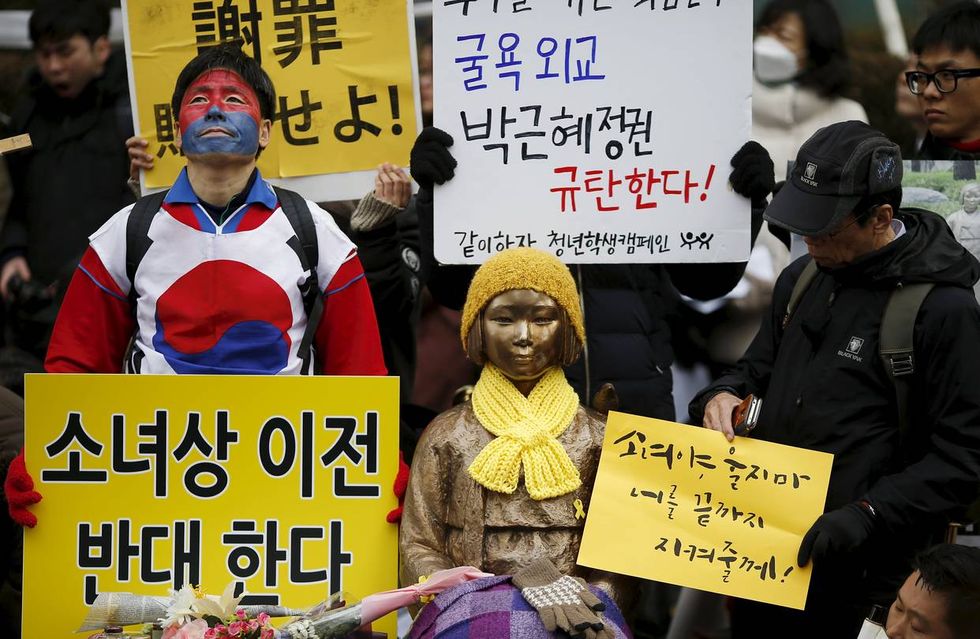1942 was the year when Japan first coined the term "comfort women"; it referred to the young Korean girls who were forcefully abducted into sexual servitude by the Japanese Imperial Forces during World War II. For years, this has been a sensitive issue - especially given the stable political and economic relationship between Japan and South Korea.
2016 was the year Japan issued an apology that supposedly "resolved and finalized" the entire issue. Then U.S. Secretary of State John Kerry applauded the Japanese Prime Minister, Shinzo Abe, for having "the courage to reach an agreement" on the "comfort women issue,". Not only is publicly proclaiming this to be "resolved" an insult to the thousands of girls who were forced to sleep with at least 50 Japanese soldiers every day, it disregards the years of shameless denial that the Japanese government partook in. On top of that, the "apology" failed to address the girls from China, Australia, Myanmar, Indonesia, the Netherlands, Taiwan, etc. who were also forced into sexual slavery. The 8.3 million dollars the Japanese government promised for the Korean victims cannot be seen as proper compensation when Abe decides to remove a memorial in front of the Japanese Embassy in Seoul that commemorated the victims. Such actions succeed in marginalizing Japan's war crimes and minimizing the scope of suffering.
Japan has had a history of erasing their own wrongdoings and molding it to their liking. This is especially evident in their dismissive attitude towards Battle Island. Back in 2015, Unesco granted world heritage status to 20 Japanese industrial sites, including the island coal mine Gunkanjima, known as Battle Island; according to Japan, it represented "the transformation from feudalism into a successful modern economy,". It may be so, but it was also the place where 60,000 laborers were forced to work during Japan's colonial rule over the Korean peninsula (1910~1945). Thus South Korea opposed the application for world heritage status unless Japan publicly declared that they had used forced labor during their colonial rule. After the U.N. postponed the decision, Japan agreed to acknowledge their use of coercion and conscripted labour. This was only after Japan had initially rejected South Korea's proposal on the grounds that the application referred to a period up to 1910 (before foreign laborers were put to work on the sites). While South Korean government welcomed the agreement, officials in Tokyo attempted to play down the significance of Japan’s concession. And no one seems to point out that Japan had once again failed to address other countries that were involved, such as the Chinese laborers. This lack of transparency speaks to Japan's attempt to portray only a portion of their history to the international world.
It has been too long that Japan has been denying or playing down the significance of their war crimes. Sanitizing a country's past is just as bad as committing the unethical acts themselves. Nothing can make up for the humiliation, brutality and fear the victims suffered; but since the perpetrators will never be brought to justice, it is time for Japan to admit their past. After all, according to George Santayana, "Those who do not learn history are doomed to repeat it,"


















